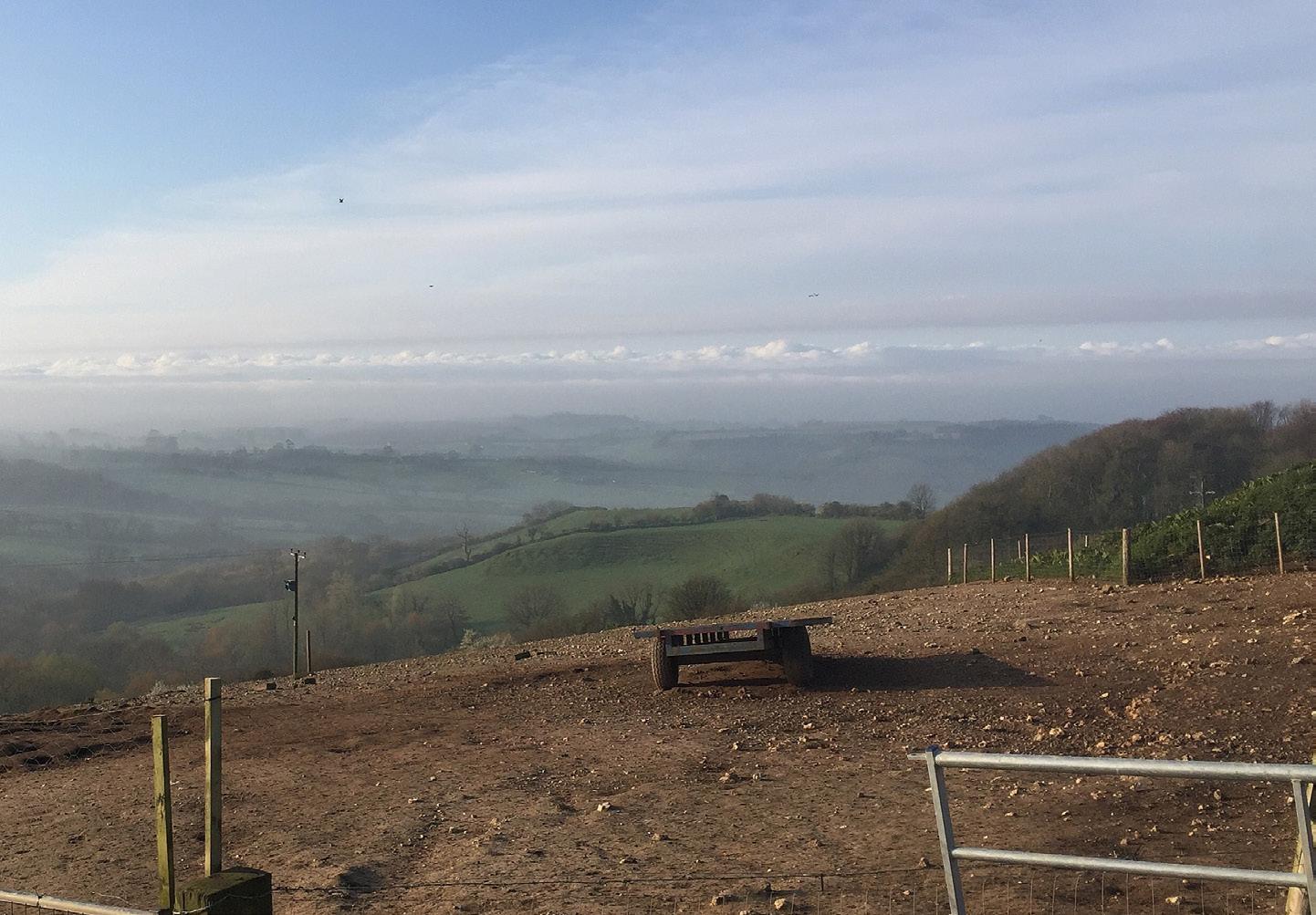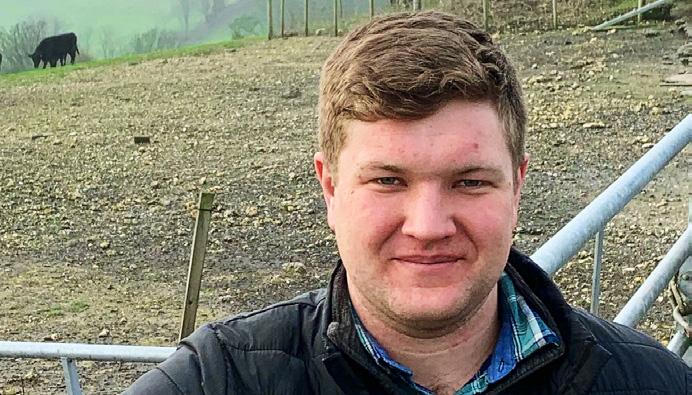
5 minute read
Farming
Voice Of A Farmer
James Cossins is a 5th generation farmer in the Tarrant Valley.
Advertisement
The month of March has been very productive at Rawston, with most of the spring planting completed.
Spring beans have been sown, providing home grown protein for our cattle and hopefully some to sell. Also spring barley has been sown, using varieties suitable for beer making. Let’s hope there will be good demand in the summer when we can go to the Pub again!
March is also a busy month for us spreading our organic manure produced from cows and calves during the winter months. The manure is mainly straw-based, and is spread on the land and incorporated into the soil before sowing, providing nutrients for the crop and maintaining soil organic matter.
We have also started grazing our dairy cows who seem to be enjoying the freedom of grass again. Hopefully as we move into April more cattle will be able to go out into the fields again, saving a considerable amount of feed, straw and time in looking after them inside.
With the large numbers of walkers currently enjoying the countryside at the moment let’s hope that we can all work together using the countryside code to prevent any issues involving livestock. We have an Aberdeen Angus bull on the farm so I must make sure he is in an appropriate field with other cattle, to minimise any risk to the public.
Within the farming community there has been much debate regarding the Red Tractor consultation.
Hopefully most consumers understand what the Red Tractor Logo stands for on food produced for sale. This produce would have had to meet certain standards on animal welfare, the growing and storing of the food products in order to be Red Tractor Assured. In order to become ‘assured’, an assessor will inspect the farm and any associated records on an annual basis. There is currently a consultation to review the standards which many growers feel are adequate - any increase in standards will increase the cost to the producer without necessarily getting an increased return. Perhaps more emphasis should be put on increasing the awareness amongst consumers as to what the Red Tractor stands for? Hopefully consumers will understand the importance of buying Red Tractor Assured food, as it would have been produced to a high standard and produced in this country.
Fred Fudge the Rawston Farm herdsman in the 1950’s with a twin of Friesian calves
Currently many food products that are imported are not produced to the same standard.
Here at Rawston Farm we are promoting the Love Local Trust Local logo to highlight that food with this logo has been produced locally to a high standard and is fully traceable.
On the farm 100yrs ago:
Interestingly looking at my family’s 1921 diary there is no mention of food assurance! Looking in the diary I see one hundred years ago one of the highlights of April was a fancy dress ball in Blandford Corn Exchange. Let’s hope that when the current lockdown is over we can look forward to similar events!
After three and a half months of their own lockdown, poultry birds across the country on the 1st of April were allowed to finally leave their sheds, houses and coops.

Their own lockdown, known as a ‘housing order’, has many more draconian measures than we humans experience. Birds across the United Kingdom have been shut up with no access to the outside; let alone a trip to the pub!
However stringent they were, the measures were in place to protect them from the everspreading Avian Influenza (AI), more commonly known as bird flu. Whereas COVID-19 shielding means keeping distance from your neighbours and the local shopkeeper, the bird flu superspreaders are your every day, roaming wild bird.
You need to think of that beautiful wild duck tearing freely around the British countryside as an anti-masker; flaunting lockdown laws, licking lampposts and heading to your local supermarket to study variations of kissing on numerous fruit and veg perishables.
In the UK so far, it has been reported that over 250,000 birds have been culled due to contracting the disease and as a keeper of a large number of hens, we keep a close eye on how close to home reports of AI cases are coming up. For example, in November and December, there have been reported outbreaks in the Abbotsbury Swannery and Gillingham respectively.
With the unfeasible cost of insuring one shed of our birds against AI at around £3500, we have to be doubly careful with our biosecurity when going on to our farm. Admittance into sheds is prohibited from any unnecessary visitors. Anyone that does enter the living space of the birds - known as the ‘specific bio-secure area’ - has to wear overalls, disinfect shoes and wash hands.

Most modern farms built today have a shower built by reception so visitors ‘must shower on and shower off’ site to ensure the tightest biosecurity. Imagine the queues outside your Tesco if you had have a quick full-body scrub before doing your shopping!
Thankfully, however, there are a few signs that lockdown measures won’t be necessary for the future. A recent study completed by Wageningen University, Netherlands, showed that the use of lasers around chicken houses and ranges sees a reduction in wild bird activity by 99.7%. The lasers fire beams of light into the sky, which oncoming birds deem as an obstacle so they disperse from the area for protection. Admittedly,
it is a drastic form of social
distancing, but it is a possible method that would greatly deter potentially infected birds and protect farmer’s livelihoods.
In a facsimile of our own pandemic, birds are being granted protection through the use of a syringe. In the Bergen aquarium in Norway, the penguins in the enclosure are having their second jabs against the disease. So expect to see a penguin in your local with their vaccine card soon, enjoying a cold one.
An empty chicken range at Westleaze - Andrew Livingston
Andrew Livingston on Westleaze Farm










